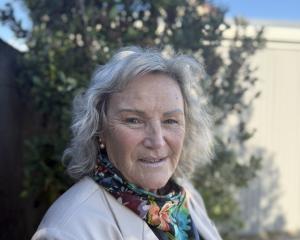
The Otago Housing Alliance surveyed mayoral and council candidates across the region on their attitude towards housing and homelessness and actions they would take if elected.

"But it’s an issue across the region, and so it seemed helpful to get a read on what candidates saw the role of local councils being in trying to address some of those issues," he said.
Common themes in Dunedin candidate responses included funding of outreach services for whānau experiencing homelessness and revisiting the council decision to stop its public housing build programme.
Lobbying the government to build the abandoned Kāinga Ora development in Carroll St also featured prominently.
"[The responses are] encouraging, given that one elected member alone doesn’t have the capacity to be able to set direction for council, but knowing that there may be a number of fellow travellers is encouraging," Mr Hawkins said.
Mayoral candidate Cr Marie Laufiso said councils should play a far greater role in addressing homelessness within the community and could not wait for a change to government policy.
She favoured increasing staffing and resourcing to deliver the Ōtepoti Housing Action Plan.
Fellow candidate Cr Sophie Barker said local government could lead by "resourcing actions to address homelessness", including advocating to central government, working with social services and delivering a homelessness action plan.
Future Dunedin mayoral candidate Andrew Simms said the council needed to release or rezone unused land and designate it for low-cost housing.
Cr Carmen Houlahan, who is also running for mayor, said central government needed to build the state houses promised for Dunedin.
Mayoral candidates Jules Radich (incumbent), Lee Vandervis, Lync Aronson, Lianna MacFarlane, Flynn Nisbett and Pamela Taylor did not respond to the survey — about half the 54 Dunedin City Council candidates responded.
Mr Hawkins said it was "best left up to individuals to determine why they didn’t make it a priority to respond to these particular questions".
"I think it’s a really useful guideline for any voters who are as concerned about housing as we are, to get a sense of who they should be supporting in the upcoming election."
In Queenstown Lakes, regulating short-term visitor accommodation and allowing for inclusionary zoning were recurring themes.
Responses from the Waitaki and Central Otago districts indicated support for advocating social housing to central government and smart district planning to assist housing growth.
The full list of candidate answers is available from the Otago Housing Alliance upon request.














